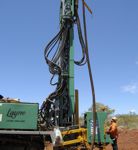 With global economic recovery slowly taking place, the U.S. Energy Information Agency (EIA) predicts world liquid fuel markets will tighten over the next two years as global demand picks up. The EIA projects regular-grade gasoline will rise from a 2010 average of $2.78 per gallon to $3.29 by 2012, and diesel fuel will rise from an average of $2.99 per gallon in 2010 to $3.52 by 2012. These national fuel price increases will have impacts on Flagstaff businesses and consumers, presenting both challenges and opportunities.
With global economic recovery slowly taking place, the U.S. Energy Information Agency (EIA) predicts world liquid fuel markets will tighten over the next two years as global demand picks up. The EIA projects regular-grade gasoline will rise from a 2010 average of $2.78 per gallon to $3.29 by 2012, and diesel fuel will rise from an average of $2.99 per gallon in 2010 to $3.52 by 2012. These national fuel price increases will have impacts on Flagstaff businesses and consumers, presenting both challenges and opportunities.
When asked about the prospect of rising fuel prices, Jim Babbitt Ford Lincoln Mercury’s General Sales Manager, Rich Beecroft, highlighted Ford’s improvements in all its vehicles’ fuel economy that should help them avoid a sales crunch similar to 2008.
“We are in truck country; however, with our new Fiesta, Fusion and hybrid models, we’re seeing a lot more interest in our smaller vehicles because we’re able to compete with your Hondas, Toyotas, Hyundais and Kias,” said Beecroft. “As a consumer, people keep an eye on fuel prices, but thankfully, Ford has done its homework and prepared itself to be ready for another spike.”
Horizon Moving Systems is Arizona’s largest residential and commercial mover, with big-name clients such as the Arizona Cardinals and the University of Arizona. Horizon operates six trucks in Flagstaff and 60 trucks statewide, which means an increase in diesel prices would have direct impacts on its business and customers.
“Everything anybody owns has come in a truck, so a diesel price increase goes all the way down the line – our drivers will have to pay more for fuel and that cost gets passed on to our customers in a fuel surcharge, meaning we could lose business,” said Ted Molina, Horizon Moving System’s Flagstaff Branch director. “There is no way to adapt either – there are really no other routes that will save you fuel, and a newer truck may only increase your mileage by a gallon or two, which only makes sense for a company with thousands of trucks.”
To stay competitive and keep prices down, many Flagstaff businesses have found creative ways of reducing transportation costs of their products, specifically by reducing weight.
Sustainable Packaging Solutions LLC, which manages Kind Vines, is revolutionizing the local wine bottling and distributing market. They are offering reusable bottles worth two dollars to the consumer when returned – essentially taking the glass weight out of shipping clients’ wine altogether.
“The weight is about half and the volume one-third compared to shipping wine in bottles. Plus, once the bottles are in our local distribution area, their footprint remains here and the mileage on those bottles that are produced internationally is greatly reduced,” said Kind Vines co-owner Brandon Doss. “Arizona could show the entire nation that there is a better way to get products to the consumer.”
The Lumberyard Brewing Company also had shipping costs in mind when they chose to package and distribute beer in aluminum cans. Co-owner Winnie Hanseth tells Flagstaff Business News that “by using cans instead of glass bottles, we not only cut back on the weight and size of our product when freighted, but it is much easier to recycle aluminum than glass.”
These recent innovations in vehicle fuel efficiency, packaging and shipping models suggest a new alignment of efficiency, profitability and sustainability that is taking place in the business world as increased demand raises resource prices. Along these same lines, Flagstaff businesses are also looking at ways to increase their buildings’ energy efficiency.
Ryan Corte, owner of Flagstaff’s building-weatherization company, Green Model, said, “For a business, they’re going to save money, improve their image, their safety and the life expectancy of their property by increasing energy efficiency.”
New Frontier’s Natural Marketplace is one such example, as its Flagstaff location reduced its energy costs with photovoltaic solar panels and a high-efficiency heating and cooling system. New Frontiers Marketing Director Ron Colone says the “old-paradigm thinking was either/or – either you had to choose the profitable model or the intelligent model, until finally those merged, and thankfully, the intelligent model is becoming the more profitable model as well.” FBN








This is right on the money! Your mention about how we are better prepared for this spike in oil prices was addressed in today’s NYT: http://www.nytimes.com/2011/03/09/business/economy/09gasoline.html?_r=1&hp. Look’s like your reporting is ahead of the times, no pun intended!